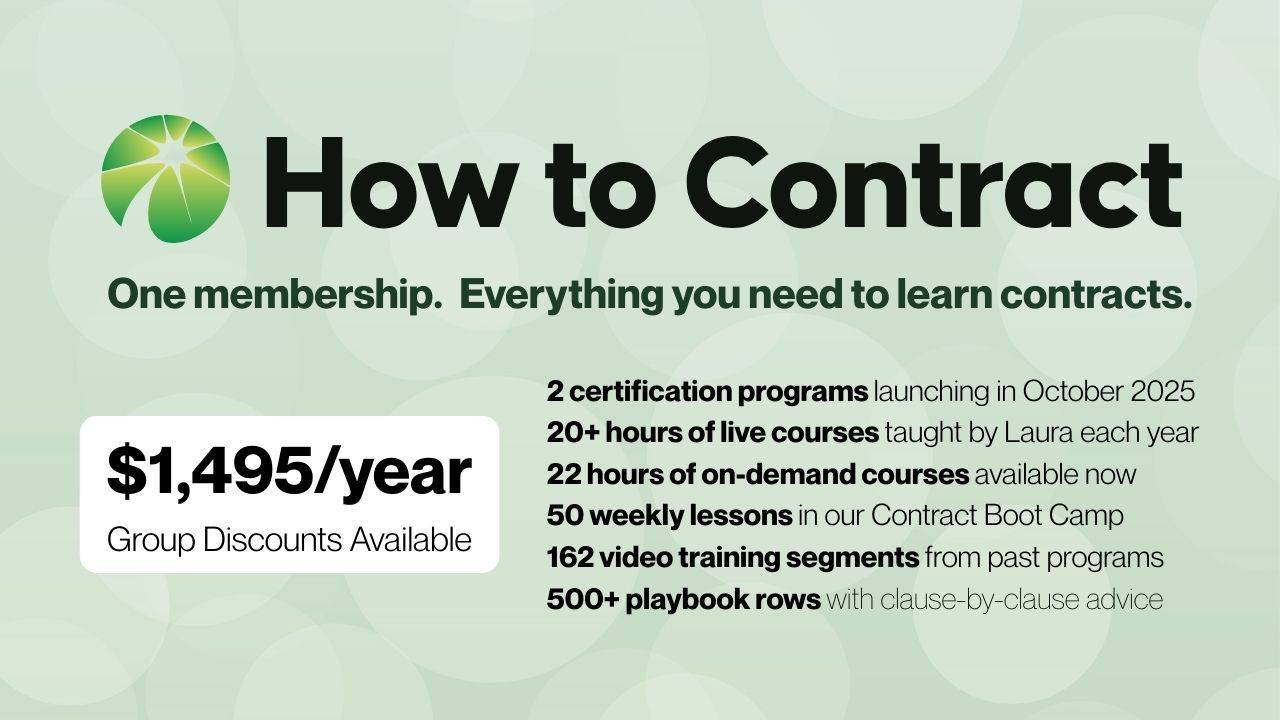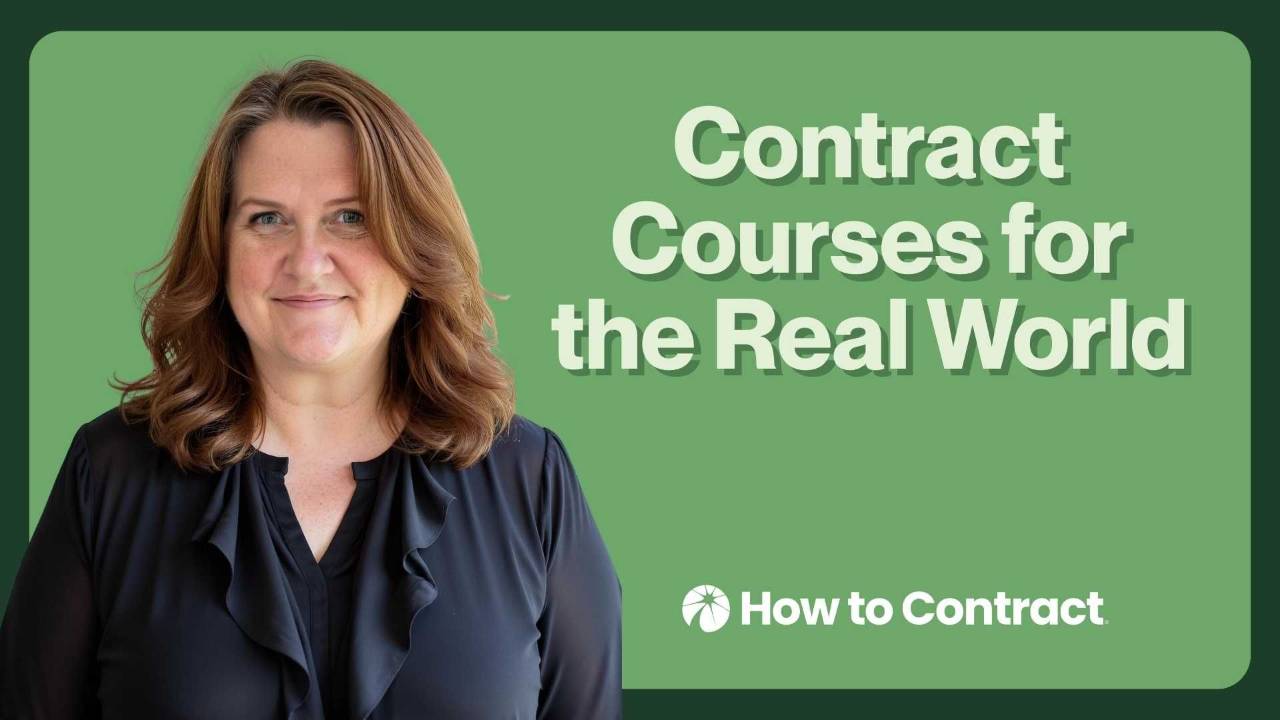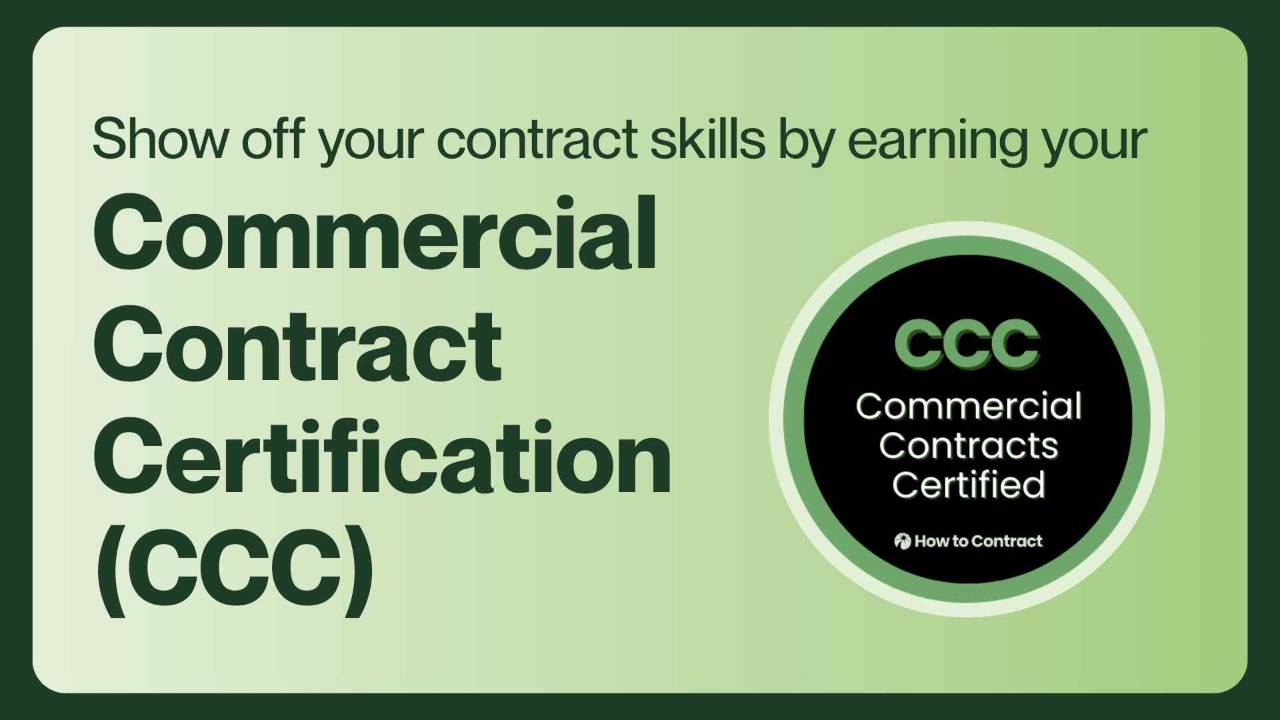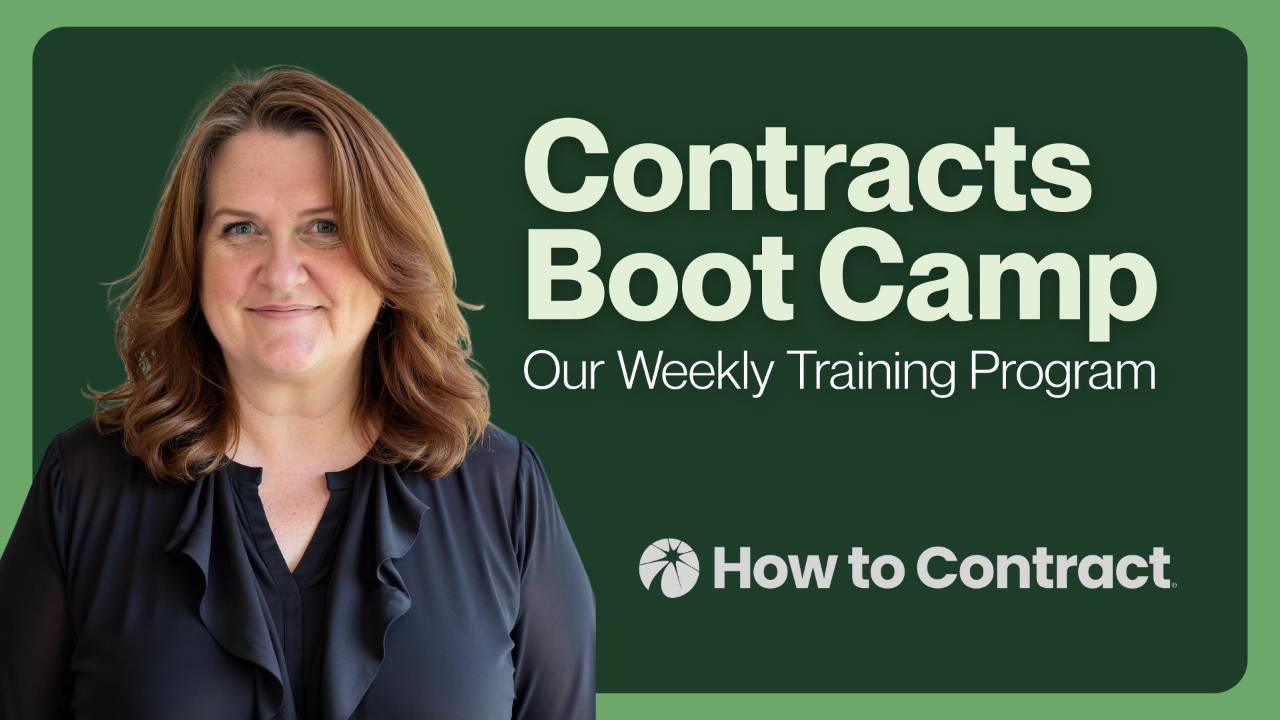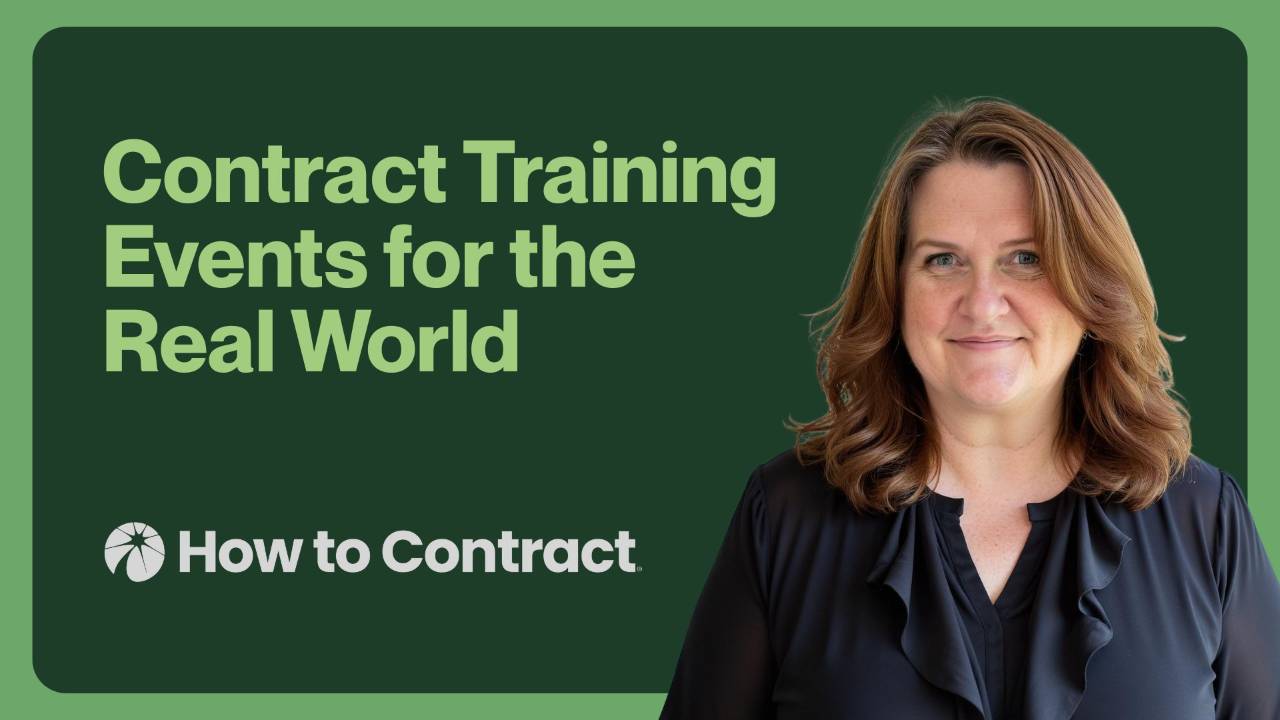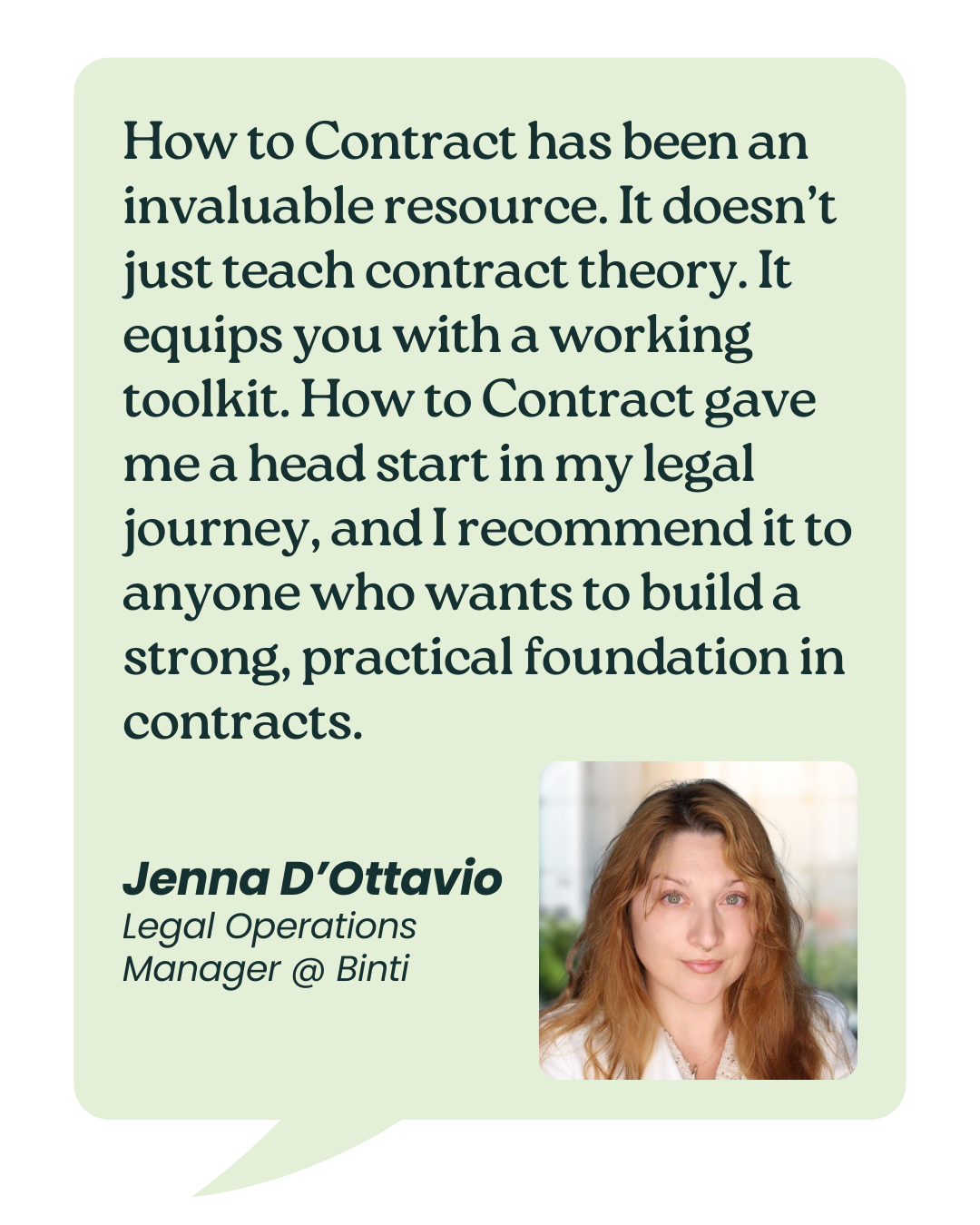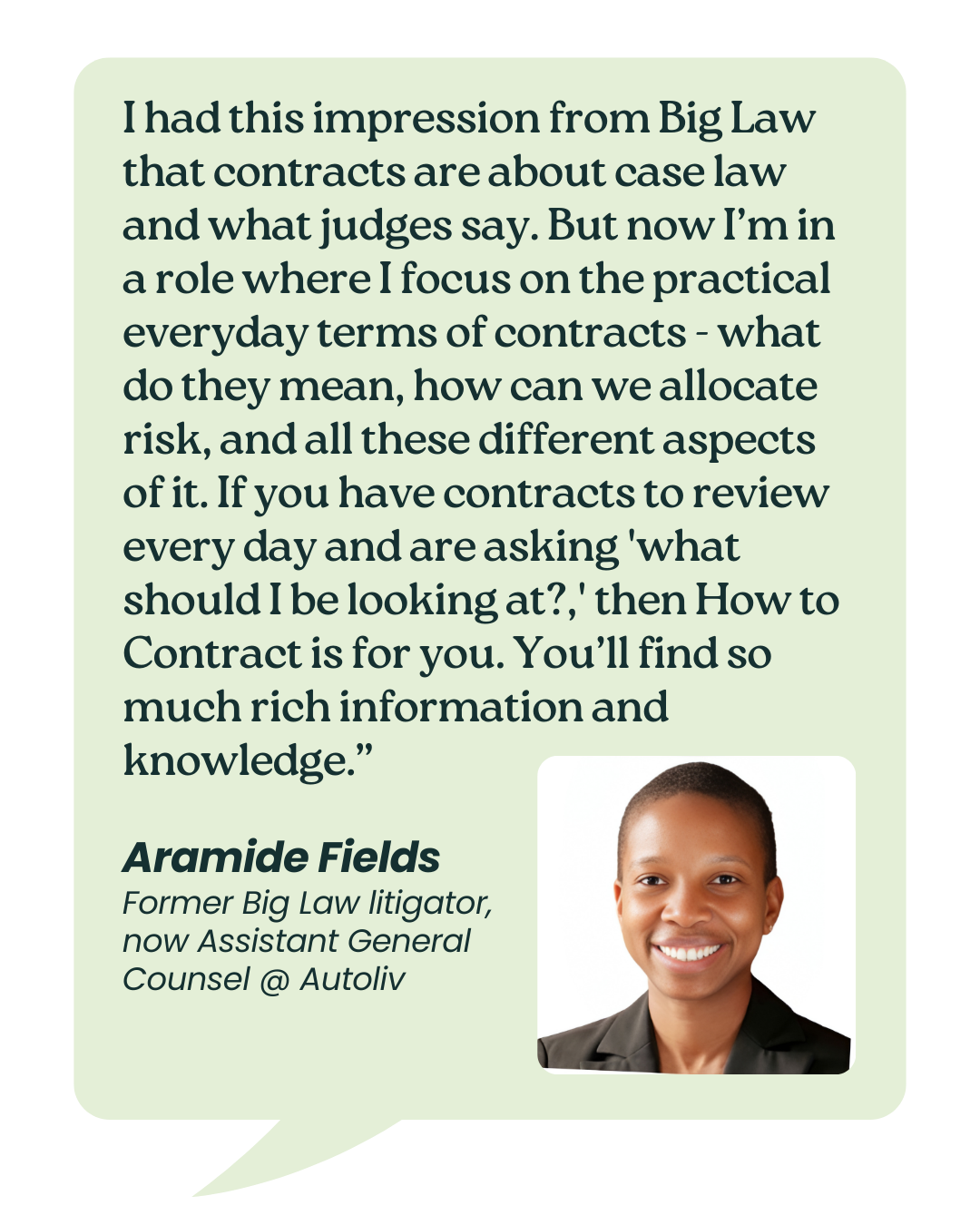
How I Contract: Interview with Michelle Fleming, General Counsel at Bell Techlogix
We interview Michelle Fleming, General Counsel for Bell Techlogix. With almost 20 years of experience in the industry, she's "an attorney that enjoys contracts more than anyone you know." And it shows in the interview! This interview is part of the How I Contract interview series with experienced contract lawyers and professionals which showcases experiences and advice on working with contracts in the real world.
Michelle Fleming’s Path to Becoming General Counsel at Bell Techlogix
Can you tell us a story about what brought you to this specific career path? How long have you been working with contracts?
I’ve been working with contracts for about 18 years. Originally, I was doing criminal defense and other litigation. My thinking of what it meant to practice law was that you had to work at a law firm and go to court every week because attorneys at law firms were the only ones I knew.
When I eventually moved to an in-house counsel position, I formed a networking group of other in-house attorneys. There were only about 15-20 of us in the entire county, so you can understand why the path I took wasn’t originally on my radar.
What led me to a career working mainly in contracts was a conversation with a friend. She told me about contract specialist jobs. I couldn’t believe a job working mainly on drafting, negotiating, and managing contracts existed! Her advice led me to apply for a Contract Administrator job with a start-up and I advanced to a General Counsel position. That company grew through acquisitions. Eventually, it was acquired by a Canadian company and I became Associate General Counsel of the US entity.
I then had the opportunity to join Bell Techlogix as General Counsel, focusing heavily on contracts.
Day One Advice for Working with Contracts
Let’s move to the topic we all love — contracts. What should you do on day one of working with contracts? What shouldn’t you do?
Learn about the business, your coworkers, the clients, and the key contracts currently in place. This helps set the foundation for future drafting and negotiations.
Don’t work on a contract without first understanding what work is happening under the agreement and how risk-averse you need to be.
Regarding the first point, sometimes it can be difficult to tell just by looking at the agreement what the parties are actually doing. The agreement might contain a lot of “boilerplate” with no specifics on the actual deal. You might need to look at presentations, quotes, or vendor websites to understand more. You definitely need to talk to your coworkers to make sure you know the full landscape. You can’t competently revise an agreement without first understanding the scope.
On the second point, the goal is usually not to make something zero risk. The goal is to get the risk to a level that is acceptable. How risk-averse you are can directly correlate to the level of markup in the contract and the level of markup can correlate to how long it takes to negotiate the agreement. So, it’s very important to understand what level of risk is acceptable upfront.
Common Mistakes in Contract Work and How to Avoid Them
What mistakes should new contract lawyers and professionals avoid when working with contracts?
One of the biggest mistakes is letting fear inform how you react.
Don’t assume the world will end because you’ve made an error. React quickly. Correct the mistake if you can. Disclose it to your team so it can be navigated around if you can’t correct it. Decide what steps you can take to ensure that type of mistake doesn’t happen again.
I’d also say failing to improve from your mistakes is another big mistake. Always look for the learning opportunity in it and how you can do better next time.
Practical Tips for Contract Management and Time Efficiency
What is your favorite contract management tip? Why?
Before you start looking at a full-fledged CLM solution, look at what databases are already in use at your company, like your ERP or CRM system. You need to see if there’s an add-on contract module and if it makes sense to use it.
If you can integrate your contract management system into a solution already in use, it means less time implementing and training teams on how to use it, and no navigating between two different systems to access client/vendor records. Also, it’s probably going to be a bit cheaper than going with a new CLM.
As far as key contract terms to track in your solution, figure out what contract topics you’re frequently getting asked about, for example, renewal and payment terms, and begin by tracking those.
Tracking legal terms like limitation of liability is a great idea, but the immediate goal should always be to serve the business. Start by tracking the terms important to the business.
What is your favorite time management tip when working with contracts?
You shouldn’t cut time in reading agreements, any agreements, because you never know what you’ll find.
As an example, generally, most NDAs are very similar. Because of that, you could be tempted to skim it quickly and skip over sections if you see the section header indicates it covers the language you’d expect.
Don’t skim.
Read it line by line.
I once saw language in an NDA that restricted my client from using vendors of the other party for the term and a few years after. That would have been problematic.
Also, take the time to click on linked policies and terms in all agreements and read those. Usually, they’re fine, but sometimes you can find surprising things.
Where you can cut time is in revising. After you’ve read the entire agreement, you can save time by revising only those terms that are material, based on some predetermined factors like scope, exposure, length of contract, spend, etc.
Connecting with Counterparties: Michelle’s Negotiation Strategies
What advice do you have for dealing with difficult counterparties?
I like connecting on a personal level with other people. By doing that, most of the time, I find out they’re not being difficult per se. They’re reacting how they are for a reason.
I just need to see if I can understand what that reason is and see if we can work through it together.
Sometimes it’s as simple as a misunderstanding of why we’re asking for a certain change. Sometimes they have a lot of contracts to get through that day and they’re frustrated with having to review more revisions from me. Sometimes they have serious things going on in their lives that have nothing to do with me and I just need to be understanding about it (while of course making sure the language is the best possible for my employer!).
We’re all just people trying to do our best.
Lessons Learned and Continuous Growth in Contract Work
Can you name one thing every contract lawyer or professional should do every day to get better at contracts?
I’ve been watching a lot of webinars, practical “hands-on” advice on how to handle contracts in the real world. Pramata and Lexion both offer free on-demand webinars. In-House Connect offers many free live webinars and you can access the recordings for a fee.
A couple of free on-demand ones I’ve watched recently include: “Navigating Service Level Agreements for In-House Counsel” hosted by Pramata; "Rumble in the Redlines: How to Redline and Negotiate DPAs for In-House Counsel” hosted by Lexion; and “How to Redline Indemnification and Limitation of Liability Clauses for Tech Transactions” hosted by Lexion.
I also subscribe to How to Contract and watch the training videos in the library.
What advice would you give to your younger self when you started working with contracts?
Save perfectionism for your contract templates!
We all want our work product to be good. So, it can be hard not to revise the language until you think it’s perfect. But often that’s counterproductive and it certainly adds to negotiation cycles.
Nada Alnajafi said that too many revisions can dilute your negotiating power and she’s right. Sometimes you just need to focus on revising what’s material when you’re working with third-party language and save all your wording perfectionism for your templates.
What advice would you give to contract lawyers and professionals working in a team?
I heard something on a cooking competition show the other week and it really stuck with me.
“We go in as a team and we leave as a team. Firefighters go into the building together and leave together and so do we.”
A judge was trying to get a team lead to identify who on the team overcooked the chicken. The team leader responded with that quote. When you’re working together on a project, work collectively to resolve any issues and remember you go in as a team and you leave as a team.
Another piece of advice I learned is to act like a goose!
You know geese fly in a V shape. The geese are constantly trading off which one flies at the tip of the V. When the leader tires out, it falls back into the rotation and another goose takes the lead position. Same thing with team behavior. Every member of the team brings their own unique strength and expertise to the project and should lead from that angle.
When the team shares accountability and responsibility, it can help build trust, confidence, and team cohesiveness.
Overcoming Imposter Syndrome as a Contract Lawyer
Have you ever felt imposter syndrome when working on contracts? How have you been dealing with it?
Absolutely, but not for the reasons you’re thinking.
So long as I prepare and put in the work, I know I can handle most contracts (and I know enough to recognize when something is outside my area of expertise and say so).
My imposter syndrome comes in because I have a movement disorder that causes shaking and trouble with gait and balance. It’s called Essential Tremor. Lawyers are supposed to give the appearance of confidence and people usually equate shaking to nervousness or lack of confidence.
That’s not at all accurate in my case.
It’s well managed by taking an anticonvulsant and lifestyle changes, but sometimes the shakes do come out and cause a case of imposter syndrome when I’m standing around all these non-shaky (as in, confident-looking) people.
An example of it actually happened at Contracts Con, to be honest with you. I was with a group of attorneys, most of them were getting pictures taken with Laura Frederick. Someone asked if I wanted a picture taken with Laura and I said no. I actually did want a picture, very much, but I was shaking and didn’t know what people would think about that. So, I said no to avoid drawing unnecessary attention to myself. That’s the type of situation where I have imposter syndrome.
Next time I’m getting a picture, shakes and all!
Managing Stress and Staying Focused in Contract Work
What advice do you have for managing the stress and work demands that come with working on contracts?
I don’t stress, I just focus on the problem.
As long as I’m actively working on the problem, I’m good.
I do think getting in the right frame of mind is important in managing stress and that what it takes to get in the right frame of mind varies from person to person.
For me, I get in the right mindset by staying active. I run every day and I take a functional fitness class once or twice a week. Those things make me feel more energized, centered, and capable.
Figure out what you need to do to feel that way and then do it.
Also remember, “nothing ever changes if nothing ever changes” and nobody is going to make you take care of yourself except you.
What should contract lawyers and professionals do to stand out?
Be yourself.
Trust and rapport are important in contract negotiations.
The easiest way to build those is to establish a connection and it can be hard to build a connection if you’re robotic. So let some of your individuality and personality show through.
Could you share the biggest lesson you’ve learned while working with contracts?
The biggest lesson I’ve learned is how little I know!
It’s so important to make sure you’re proactively signing up for webinars, conferences, or meet-ups so you can learn new best practices and ways of doing things.
As an example, I was watching the Governing Law training video in the How to Contract library the other day. I went into it thinking I knew the basics already. But the training taught me a lot. For example, I didn’t know that the governing law in a contract usually only points to substantive law, not procedural. I also didn’t know that in some states the governing law may only apply to contract claims, not tort claims like claims of negligence.
It’s important to realize there is a lot you don’t know, and there always will be, and that you need to continuously educate yourself.
Why Michelle Loves Contracts and Who She Recommends Next
What interview question would you like to be asked and how would you answer it?
Why do I love contracts so much?!
A couple of reasons. I like that there’s always something new to learn and ways to continuously improve. I enjoy taking the mental blueprint for business ideas out of people’s heads and getting it on paper.
I love that EVERYONE is working towards a common goal of closing the contract. We may be on opposite sides of the table, but we’re on the same team.
Who do you think we should interview next? Why?
Katharyn Owen, VP Sr. Counsel.
Katharyn is a former coworker. She brought authenticity, an engineering background, and business smarts to every contract negotiation and I learned a lot from her. I think it would be good for others (and me!) to see her contract tips!
How to Contract's membership is designed to help you build real-world expertise with commercial contracts. Get access to our comprehensive system of live and on-demand courses, weekly lessons, detailed playbooks, and more. Join today!

